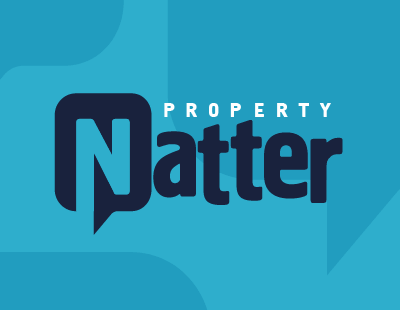For nearly every generation, this is brand-new terrain – unprecedented in its scope and magnitude. We are now effectively on a war footing, albeit against an invisible enemy. Even during wartime, there wasn’t this level of social distancing or self-isolation required, so we are all in totally uncharted waters. And, as you’d expect, it makes for frightening, unusual times.
So much we’ve taken for granted for so long has temporarily been put on hold, and we must get used to the new normal, not knowing for sure how long it will last.
We are living through history, albeit not the sort of history we want to be living through. This will probably be the most momentous period of the 21st century, a world-defining watershed moment that will impact all of us.
There have been major events – such as 9/11, the global financial crisis and Brexit – which have changed life as we know it, but never on the scale of the Covid-19 pandemic, with the suspension of most aspects of normal life for an indefinite period.
If you’d have told me, even at the beginning of March, that Euro 2020, Glastonbury, the Olympics in Tokyo and the Eurovision Song Contest would all be delayed or postponed, that the Premier League would be stopped, and that major soaps such as EastEnders would cease filming, I don’t think I’d have believed you.
I think many of us were guilty of underestimating the sheer danger and spread of this virus. We’d all seen the scenes in China, and the rising crises in Italy and Spain, but while normal life was continuing here there was a sense that it might not happen to us. But then that bombshell week of announcements which were almost too much to comprehend, and a situation which is changing so fast that it’s hard to keep up to speed from one hour to the next.
It’s a disease which no amount of wealth and privilege can shield you from – as shown by high-profile figures such as Boris Johnson, Prince Charles, Idris Elba and Tom Hanks being diagnosed with coronavirus, and various other world leaders being affected too.
That said, it’s important to keep a sense of perspective at these times. As has been stated elsewhere, this is the first pandemic being played out in real time, fuelled by social media, the 24-hour news cycle and constant updates and alerts. It cannot be healthy - and is surely something our brains can’t be wired to cope with? - to hear about every single new case and death the world over.
It can feel relentless, and there is a danger that we’re creating a mental health epidemic that will be as severe as the virus itself over time. It’s a good idea for us all to try and limit our news intake to maybe once or twice a day, unless you specifically need to keep track. The daily news bulletins held by Downing Street are a good way of keeping up to date with the latest measures, but in this information age there is a danger of information overload.
Those daily press briefings have made unlikely household names out of the experts who usually prefer to stay in the background, such as Prof Chris Whitty, Sir Patrick Vallance and Jenny Harries, with their calm, rational, honest words at a time when people are crying out for reassurance.
If, like most of us, you’re now working remotely, regular communication – whether by email, Zoom, Skype, FaceTime, Microsoft Teams or Google Hangouts – is a great way of keeping morale up, sharing ideas and preventing loneliness. I’ve also found going out for a walk, jog or cycle (as long as you’re able to and are following the new government advice) is a great way of de-stressing, particularly if you can be at one with nature.
Community spirit and collective goodwill
For all the less than wonderful things this pandemic has released – the panic buying, the refusal of people to drink Corona beer, the wild conspiracy theories about 5G and the like, and Americans queuing round the block to buy guns (what they gonna do, shoot the virus?!) – it has also shown the best of our species.
Our daily Conquering Corona series has been a great hub for guidance, tips, official advice and solutions for agents struggling with the impact of the virus. We’ve seen the property industry come together to provide buildings to house key workers as part of the fightback against coronavirus.
RICS says its working with members to offer vacant buildings to help support the country as it responds to the global pandemic. We’ve seen companies offer services for free or provide discounts and special deals to help agents and their staff at this time of need.
While social media is terrible when it comes to spreading fake news, misinformation and hysteria, it’s at its very best when it’s a people-powered vehicle to offer guidance, connect communities and keep people sane and in control at a time when we’re all feeling trapped.
Whether it’s Facebook Live videos offering advice and guidance, community groups springing up across social media to help out the most vulnerable in society by delivering groceries or medication, virtual choirs, festivals, club nights, dinner parties and pub quizzes, or various memes and GiFs to keep us all entertained, tech is playing its part in mitigating the unintended consequences of this crisis such as social isolation and a rise in stress, anxiety and depression. There’s also an army of volunteers – largely led by the oft-maligned millennials – who are stepping in to help out.
Reassurance for agents and a chance for PropTech to shine
There will undoubtedly be a severe economic jolt as a result of the pandemic. It’s not just a health crisis, but an economic one, too. We’re seeing it already, with agencies laying staff off or saying they will have to pare back branches and services.
However, the government has stepped in with an unprecedented £330 billion lifeline to effectively put the economy into sleep mode – hoping it will bounce back once the crisis is over and preventing the inevitable recession from turning into a depression. EAT covered it all here, with our brilliant editor Graham Norwood doing fantastic work to keep us up-to-date with an ever-changing landscape.
It’s very hard to keep up with a fast-moving situation, but the latest government guidance on buying and selling can be seen here. Keep checking our sites for any breaking news affecting agents – from help for the self-employed to the latest on evictions.
Many industries are going to be hit in the short-term, but hopefully the government’s radical plans should help to give some reassurance to agents that they can come out the other side.
It’s also important to remember that transactions and completions are still taking place, just in slightly different ways. And, while it seems insensitive to talk of opportunities at this juncture, it’s also the case that certain companies – in particular innovative PropTech firms – can help to offer solutions to agents in these difficult times.
Where viewings are now not taking place, for obvious reasons, VR, AR, AI, fly-through tech and video viewings are stepping in to take up the slack. None of these things are new to the property world, but for one reason or another they haven’t yet caught on. This is now the time for them to prove their worth. If consumers and companies are impressed by their services, there is every chance they will become the new normal even once the crisis abates.
Similarly, where the likes of Zoom, Skype, Dropbox and WhatsApp are helping us to work remotely and keep our businesses up and running, various PropTech solutions – whether it be online valuations to generate demand like The ValPal Network or greater use of automated rental payment services like those offered by PayProp – are helping agents to keep going.
The current crisis may also be a game-changer for digital mortgages and the digitisation of the moving process, something the Land Registry has been keen on for a while. Surely now is the perfect testing ground for seeing how transactions can be carried out in simpler, more efficient, but still well-regulated ways?
It’s been fascinating, too, to see how the portals have reacted to this growing crisis, with Rightmove’s original offer to introduce a deferred payment scheme for some agents being met with fury. It soon changed its tune, seemingly influenced by a hugely hostile reaction and the growing anti-Rightmove movement. It’s now revealed it will slash its charges to agents by 75% for four months, while also apologising for getting it so badly wrong with its deferred payment scheme.
Zoopla has come in for criticism, too, for not acting quickly enough. It eventually announced two new fee structures available to agencies – nine months for free, or three (to five) months for free. But some have seen these more complicated options, which depends on the number of branches and whether or not an agent leaves Rightmove, as tasteless opportunism.
The third portal, OnTheMarket, said it would offer 33% discounts to full-price agents, for three months beginning in April. But it wasn’t made clear how many agents would benefit.
The level of anger against the portals, especially Rightmove, is something I’ve not witnessed before, and the growing anti-portal sentiment could represent an existential threat to companies which previously seemed invincible.
These are, of course, troubling times, but one thing the experts seem clear on is the fact it will pass and things will return to ‘normal’. Life will never be quite the same again after an event like this, but not necessarily for the worst.
We’ve seen the best and worst of people in recent weeks, and the best and worst of agency, but we’re always better off when we come together and work towards a common goal.
Until next time…and keep safe.
- for all the latest advice and tips on how to combat coronavirus, check in on our daily Conquering Corona series.
- The ValPal Network has also created a handy top 19 coronavirus tips for agents. You can download them here.
- to avoid fake news, lean on trusted news sites and bodies such as the NHS, Public Health England and the World Health Organisation, not social media or what your friend of a friend’s brother said.
*Nat Daniels is CEO of Angels Media, publishers of Estate Agent Today and Letting Agent Today. Follow him on Twitter @NatDaniels.












.jpg)
.jpg)






.png)



Join the conversation
Be the first to comment (please use the comment box below)
Please login to comment